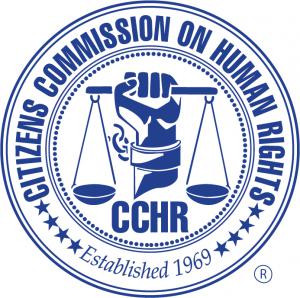Watchdog Warns of 2020 Brave New World Australian and US Mental Health Agenda
Behavioral screening of 0-5 year olds, psychotropic drugging of children, pre-drugging kids to “prevent” mental disorders form a dangerous agenda, CCHR cautions
LOS ANGELES, CALIFORNIA, UNITED STATES, December 17, 2019 /EINPresswire.com/ -- While the United States unfortunately leads the world in labeling its children with mental disorders and drugging them, Australia seems determined to take over the dishonorable title, according to mental health watchdog, Citizens Commission on Human Rights International (CCHR). IQVia reports that in the U.S. 2.1 million 0-17 year olds are prescribed antidepressants and another 1.1 million are on antipsychotics.[1] Australia has the fourth highest rate of antidepressant use in the world and the number of children and teens taking these have increased by almost 60% in the past five years.[2] This is despite warnings that the drugs can induce suicide in the young.
According to CCHR, this Brave New World scenario is about to get worse with efforts to screen infants and children for signs of “at risk” behavior and emotions.[3] CCHR’s international president, Jan Eastgate says, “Children are being evaluated based on subjective, rather than scientific-based questions or medical tests. The push is also to predict the onset of emerging disorders and potentially drug the child for ‘prevention.’”
The Australia government’s Productivity Commission investigating mental health policy recently proposed that 1.25 million children ages 0-3 be screened for “mental illness” or “emerging mental illness.”[4] Further, teachers should be trained to recognize mental health “risks.”[5] It also recommends universal screening for perinatal “mental illness,”[6] which could mean that before children are born they may be damaged from antidepressants or electroshock treatment prescribed pregnant women.[7]
“At risk” has become a highly contagious and commercial term, Eastgate says. “It is used to justify ‘early intervention,’ theorizing that pre-drugging a person can prevent mental disorders, one of which was called Psychosis Risk Syndrome (PRS).” She compared this to the 1932 novel, Brave New World, in which Aldous Huxley depicted a utopian but controlled civilization, using the “technique of suggestion—through infant conditioning and, later, with the aid of drugs.”[8] Psychiatric drug sales have now reached more than $80 billion a year.
Championing PRS was Australian psychiatrist, Patrick McGorry, who currently endorses all Australians being taxed a mental health levy to pay for psychiatric services. The State of Victoria is set to implement this next year,[9] despite improvement failures of a similar tax in California. In California, millionaires are taxed some $2 billion a year to contribute to the state’s mental health budget.[10] Yet an estimated 1.5 million California children are prescribed psychotropic drugs.[11] One in nine high school girls attempted suicide in 2015.[12] A recent Los Angeles Times investigation found records of 100 deaths in California psychiatric hospitals, of which 50 were suicides.[13]
McGorry’s program, “Headspace: Youth Mental Health,” will likely benefit from the tax. Already, between October 2018 and January 2019, the Australian government invested AU$208 million (US $143m) in Headspace.[14]
McGorry speaks at U.S. and international psychiatric conferences[15] about his programs. Yet, Professor Alan Francis, chairman of the Diagnostic and Statistical Manual for Mental Health (DSM-IV) Taskforce, condemned PRS, pointing to a Cochrane review that discredited McGorry’s extravagant claims for early intervention. The rigorous review of the scientific literature concluded “there was insufficient scientific evidence to support McGorry’s grand assertions that early intervention programs promote enduring change and can reduce the lifelong burden and cost of illness.”[16]
PRS was dropped by the DSM5 Committee in 2013 because it would have led to large numbers of young people being drugged, according to The Australian.[17] Mental health specialists also said the focus on early intervention for adolescents and young adults was “massively oversold.”[18]
An independent evaluation of headspace in 2015 revealed that of the 26,058 evaluated 12-25-year-olds, only 13% had a “clinically significant improvement,” 29% had no change and an unacceptable 24% either declined or significantly worsened.[19]
An audit of the medical records of another program, Orygen Youth Health in 2012, found a majority of depressed 15 to 25-year-olds were given antidepressants before they had received adequate counselling and fewer than half were followed up to see whether their symptoms had improved or to check for side effects, which includes increased risk of suicide.[20]
“Mental health screenings spell disaster for toddlers, children and youth,” Eastgate warns. “CCHR campaigns for such abuses to be exposed and for workable, accountable programs that help individuals and do not harm them.” Click here to report psychiatric abuse.
CCHR is the mental health watchdog responsible for more than 180 laws that now protect patients from damaging practices. DONATE to support its work.
References:
[1] IQVia Total Patient Tracker (TPT) Database, Year 2017, Extracted April 2018; www.fightforkids.org/number-of-children-taking-psychiatric-drugs
[2] www.smh.com.au/lifestyle/nearly-one-in-10-australians-take-antidepressants-are-there-other-solutions-20180116-h0jaxx.html; www.oecd.org/health/health-systems/health-at-a-glance-19991312.htm, p. 211; Australia’s third highest rate excludes the U.S., which would make it fourth
[3] www.zerotothree.org/resources/2778-minnesota-advances-infant-and-early-childhood-mental-health-assessment-diagnosis-and-treatment
[4] cchr.org.au/articles/0-3-year-olds-to-be-screened-for-mental-illness/
[5] www.pc.gov.au/inquiries/current/mental-health/draft/mental-health-draft-overview.pdf, p. 12
[6] Ibid., p. 82
[7] www.webmd.com/depression/news/20100602/antidepressants-linked-to-miscarriage-risk#1
[8] Aldous Huxley, Brave New World (Granada Publishing Ltd., 1977; first published in Great Britain by Ghatto and Windus Ltd., 1932), p. 13
[9] www.news.com.au/national/breaking-news/new-tax-levy-to-fund-vic-mental-health/news-story/513185487dee183e62d3dc864bd672d2
[10] www.cnn.com/2018/03/14/health/california-tax-mental-health-partner/index.html
[11] 1 in 6 Americans take a psychiatric drug for serious mental disorders, www.webmd.com/mental-health/news/20161212/1-in-6-us-adults-takes-a-psychiatric-drug-study#1; CA’s youth population 0-17 is reported as 9,261,018 per www.kidsdata.org/topic/34/child-population-age/table#fmt=141&loc=2,127,347,1763,331,348,336,171,321,345,357,332,324,369,358,362,360,337,327,364,356,217,353,328,354,323,352,320,339,334,365,343,330,367,344,355,366,368,265,349,361,4,273,59,370,326,333,322,341,338,350,342,329,325,359,351,363,340,335&tf=88&ch=1081,1084,1085,1082,1083,1086,78,77,79
[12] www.chcf.org/publication/2018-edition-mental-health-substance-use-californias-youth/
[13] www.latimes.com/projects/psychiatric-hospital-deaths-incidents-database/
[14] www.pm.gov.au/media/support-headspace-boosts-youth-mental-health; www.health.gov.au/ministers/the-hon-greg-hunt-mp/media/47-million-for-headspace-to-support-youth-mental-health
[15] www.escap.eu/policy/access-to-mental-health-care/; https://iepa.org.au/members/patrick-mcgorry/
[16] www.psychologytoday.com/us/blog/dsm5-in-distress/201108/seven-questions-professor-patrick-mcgorry
[17] www.theaustralian.com.au/news/health-science/medical-bible-squabble/news-story/dbc72c49be69ff0eb5e41e2d4a10e056
[18] www.smh.com.au/national/mcgorry-accused-of-conflict-of-interest-20110806-1igxd.html#ixzz1UGsdyj2v
[19] headspace.org.au/assets/Uploads/Evaluation-of-headspace-program.pdf.
[20] www.theage.com.au/national/youth-mental-health-team-too-free-with-drugs-audit-20120707-21o29.html
Amber Rauscher
Citizens Commission on Human Rights International
+1 323-467-4242
email us here
Visit us on social media:
Facebook
Twitter
Legal Disclaimer:
EIN Presswire provides this news content "as is" without warranty of any kind. We do not accept any responsibility or liability for the accuracy, content, images, videos, licenses, completeness, legality, or reliability of the information contained in this article. If you have any complaints or copyright issues related to this article, kindly contact the author above.


